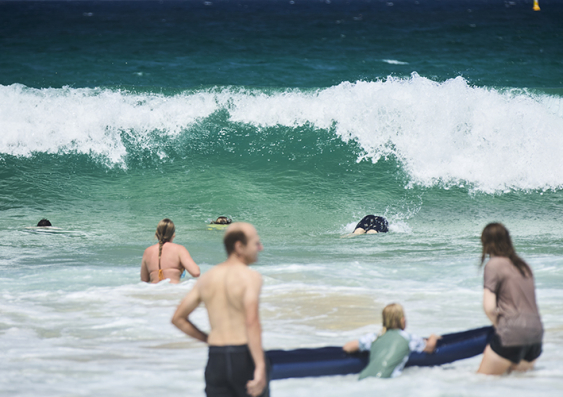Extra vigilance at beaches needed as school holidays raise coastal drowning risk: study
A study has found that adults, and not just children, are at increased risk of drowning at the beach during school holidays.
A study has found that adults, and not just children, are at increased risk of drowning at the beach during school holidays.

Lachlan Gilbert
UNSW News & Content
(02) 9065 5241
lachlan.gilbert@unsw.edu.au
The risk of coastal drowning deaths increases by 1.5 times during the school holidays, a joint study by UNSW Sydney and Surf Life Saving Australia has found.
Since the start of summer, there have already been 29 coastal drowning deaths of 54 drowning deaths nationally, and according to past statistics, the risk of drowning is equal across all age groups during the school holidays, not just children.
The research published in the journal, Injury Prevention, confirms concerns from authorities who are again urging all visitors to the coast to stay safe around the water in what is expected to be a busy end to the school holiday period.
Read more: 'If in doubt, don't go out'
“We have seen 38 heartbreaking and preventable deaths on the coast already this summer, with 29 of these due to drowning, all of which have occurred outside the red and yellow flags,” said Surf Life Saving Australia Chief Executive Officer Adam Weir.
“This new research applies to all age categories, not just school children, so this risk and information is relevant for the wider Australian population and we strongly encourage everyone visiting our coastline to remain vigilant at all times, particularly as we near the end of the school holidays”.
UNSW Beach Safety Research Group’s Dr Jaz Lawes, who also holds a research position with Surf Life Saving Australia and was co-author and supervisor on this project, says understanding risk is key to preventing future tragedies.
“Activities with the highest risk of coastal death were swimming/wading and attempting a rescue,” said Dr Lawes. “Too often we have seen tragic fatalities of bystanders, often a parent or carer who has entered the water to rescue a child or loved one in trouble, or someone who has overestimated their abilities or been accidentally caught in a rip current.
“It is crucial that people know their own limits in the water and always stay within them. Before you attempt to rescue someone, who may be in trouble, try a non-contact rescue and if you must enter the water, please take a flotation device to assist you both to return safely to shore.”
Read more: Australian beachgoers are told to always swim between the flags, but what if there aren't any?
Surf Life Saving Australia encourages everyone to take the time to check the conditions before entering the water.
“Before you enter the water stop and check for rip currents, look for other hazards, and plan how you and your family are going to stay safe, and wherever possible, swim between the red and yellow flags. That’s the easiest way to have a fun and safe day at the beach these school holidays,” Mr Weir said.